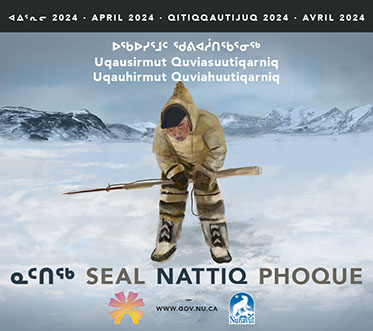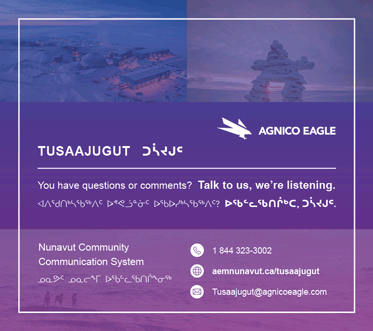'It could prove unsustainable to our way of life.'
Communities nervous about new nickel mine
Salluit's Qaqqalik landholding corporation isn't convinced that Nunavik needs a second nickel mine, especially one that's right next door to Xstrata's huge Raglan mine.
Reeling off a list of major social and environmental impacts that could result from Canadian Royalties' proposed Nunavik Nickel mine, the Inuit-owned landholding corporation slammed the company's environment impact statement during public hearings held by the Kativik Environmental Quality Commission in Salluit on Feb. 27.
The landholding corporation, which manages Inuit-owned lands in and around Salluit, said the proposed mine may cause caribou, foxes, belugas and other wildlife to flee, harm sea ice, ocean sediments and water quality, interfere with hunting and fishing, and bring minimal benefits to communities.
The landholding body said the mining company downplays the impacts of their project, saying it would "prove unsustainable to our way of life and our land and resource rights."
It asked the environmental commission to delay the mine's approval until the environmental concerns of Puvirnituq, Salluit and Kangiqsujuaq, the three nearest communties, are allayed and the parties reach an acceptable impact and benefits agreement.
By March 21, Makivik Corp. is supposed to sign a final impact and benefits deal with Canadian Royalties.
But last month, Puvirnituq, Salluit and Kangiqsujuaq said they want a larger role in the deal as well as more money. They say the agreement-in-principle should be re-negotiated.
In his presentation to the hearing, Makivik president Pita Aatami said the Salluit and Kangiqsujuaq landholding corporations and the municipality of Puvirnituq would be invited to sign the deal as "full signatories." He said the three communities would split 50 per cent of dividends from a profit-sharing arrangement.
The communities, however, want a 70-30 split, in their favour.
Aatami provided a summary of the jobs and economic spin-offs the mine would provide.
While acknowledging the communities' environmental concerns, Aatami said the Nunavik Nickel mine would pay compensation in case of unforeseen environmental impacts or damage.
Richard Faucher, the chief executive officer of Canadian Royalties, said his company hopes the signing of the impact and benefits deal will go ahead as planned.
Faucher said Makivik and the communities stand to receive a percentage of the mine's nickel profits based on the per pound price of nickel processed, as well as a schedule of minimum lump-sum payments to start in 2011, one year following the start of operations in 2010.
How this money is divided is up to Makivik and the communities, Faucher said.
In its brief, the Qaqqalik landholding corporation said the financial compensation offered by the impacts and benefits agreement pales in comparison to those from the much-larger Raglan nickel mine operated by Xstrata.
The landholding also appears to distrust Canadian Royalties, alleging the company jumped the gun on the permitting process by shipping up construction equipment last summer to Deception Bay and then transported leaky fuel containers to the mine site.
"This is indicative of a cavalier attitude within Canadian Royalties towards the environmental regulations and, most of all to Inuit," the landholding said in its brief to the KEQC.
Canadian Royalties, on the other hand, said they recorded only one leaky fuel drum.
"But it was noticed, separated and recovered," Faucher said.
The Kangiqsujaq landholding body said it's still interested in jobs and business opportunities.
However, Kangiqsujaq resident Bernie Adams told the hearing that he does not agree with a mine opening up so close to the Pingualuit provincial park, Nunavik's first.
"The tourists will spend large amounts of money to see the crater, not to see pollution coming from the smoke stacks of the mine site," Adams told the hearing on Feb. 28.
Before announcing its decision on the Nunavik Nickel mine, the KECQ will evaluate the briefs tabled at the public hearings.
Canadian Royalties remains upbeat about the result of the KECQ hearings.
"I think good common sense and logic will prevail. This is an excellent project. We hope we are going to get our permit in April," Faucher said.





(0) Comments